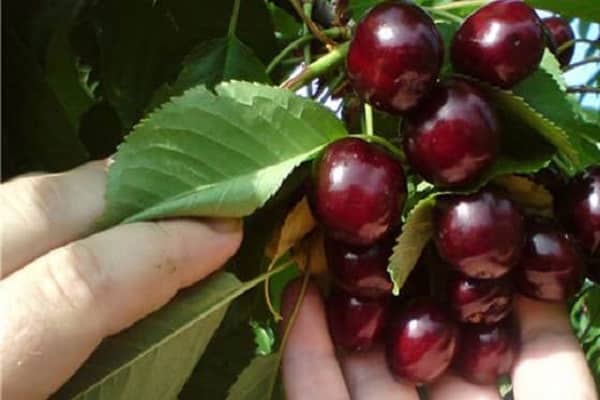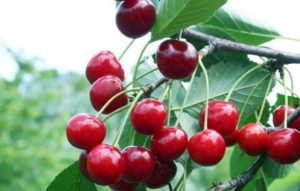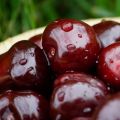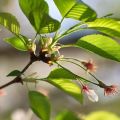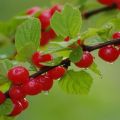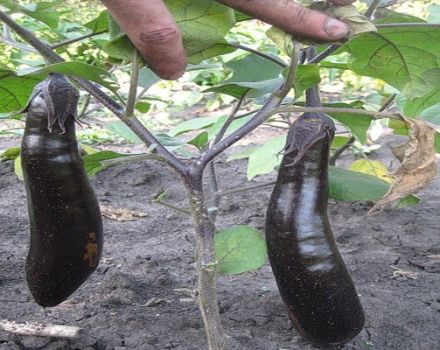Description and characteristics of sweet cherry varieties Prjuda, Evans Bali, Cinderella and Sevastyanovskaya
Cherries in your garden are a great solution. The tree blooms beautifully and gives a bountiful harvest. Aromatic compotes and preserves are made from berries, they are used for pies and dumplings. But there are not many lovers of fresh berries, because they have a pronounced sourness. In fact, to date, many varieties of sweet cherries have been bred that any gardener can grow.
Features of sweet varieties
To make the berries sweeter, breeders crossed the familiar cherry with a sweet cherry. There are varieties with other origins, for example, hybrids of different types of cherries. They are characterized by the following features:
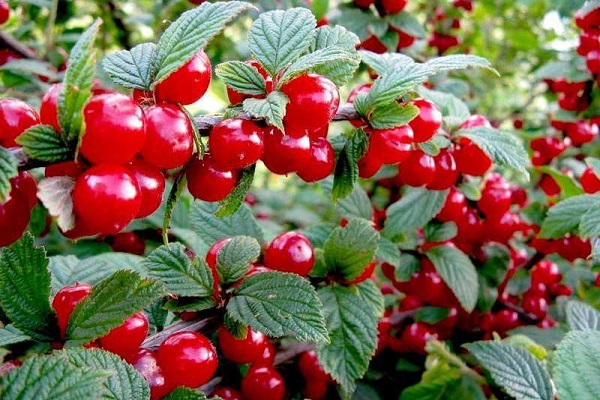
- High productivity.
- Large to medium sized cherries.
- Attractive berry appearance.
- They tolerate low temperatures well in winter.
- Suitable for central Russia.
- Easy to care for.
Sweet cherries
Work on improving the characteristics of hybrids is ongoing. I would like the tree to be resistant to cold weather, pests and diseases, bear fruit every year, the berries are large and sweet. Each variety of sweet cherries has its own characteristics. The most popular among gardeners are Quirk, Cinderella, Miracle Cherry, Sevastyanovskaya, Firtash, Evans Bali. You can get acquainted with the descriptions of the varieties and choose the most suitable one for your garden.
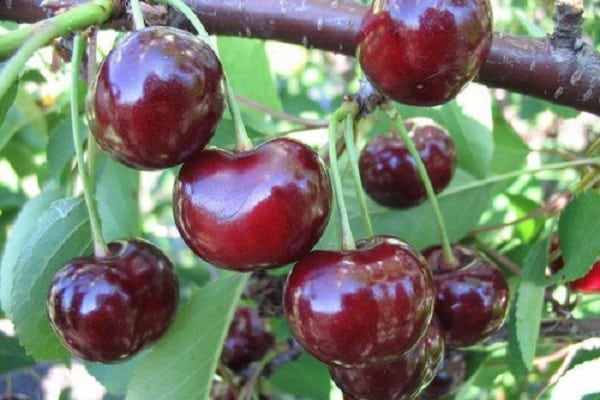
Fad
Medium-sized trees with a dense, rounded crown. It has a high growth rate, while the adult cherry is quite compact - a maximum of 3-4 meters. 6-7 kg of harvest is harvested from one tree, less often - up to 9 kg. Partially self-pollinated.
A recognized dessert variety. The berries are large, average weight 5 g. Ripen in mid-July. They have a dark red skin and flesh, the bones easily come off. It tastes sweet. The pulp is very juicy, so the Fad is well suited for obtaining cherry juice and cooking compotes.
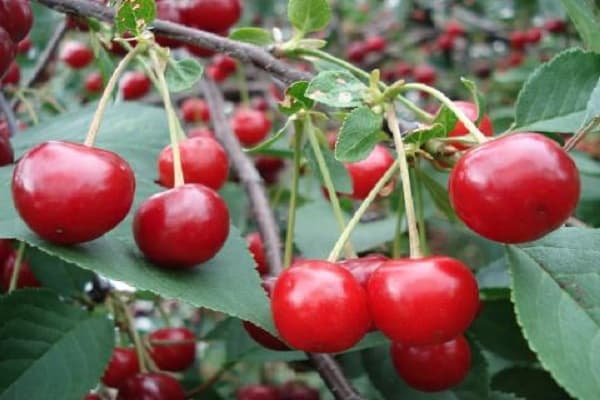
Cherry has an average winter hardiness, tolerates autumn frosts well. Suitable for growing in central regions. Of the shortcomings, it is sensitive to fungal diseases, in particular coccomycosis, therefore it requires regular processing of the leaves.
Cinderella
Another medium-sized representative, the berries ripen in the middle of summer. The advantages of Cinderella are high yields, 15 kg of berries are harvested from one tree, good winter hardiness and immunity to fungal diseases. The variety is completely self-pollinated.
The berries are medium in size, 4 grams each, dark red, sweet with a slight sourness. Suitable for growing in the gardens of the Moscow region.
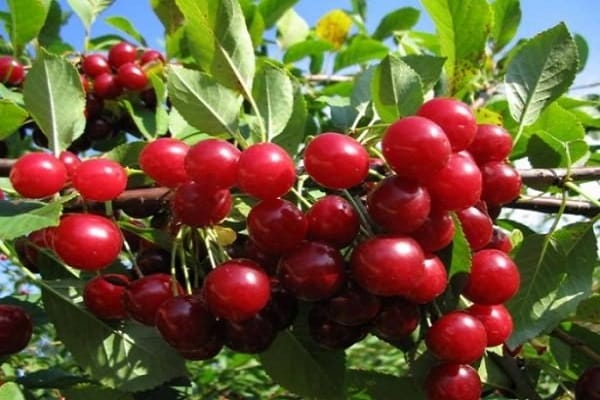
Sevastyanovskaya
Cherry grows in the form of a bush, reaches an average height of 4 m, begins to bear fruit in the 3-4th year of life, yields a harvest up to 16-17 years. The variety is partially self-pollinated; Rubinovaya, Uralskaya, Tveritinovskaya cherries are used as pollinators. From the latter, the Sevastyanovskaya variety was obtained.
The berries ripen in early August. They have an average size, rounded shape, weigh 3.5-4 g. The taste is sweet and sour, the pulp is juicy, the bones are easily removed. The strengths of the variety are resistance to fungal diseases and cold weather. Sevastyanovskaya saplings take root well.
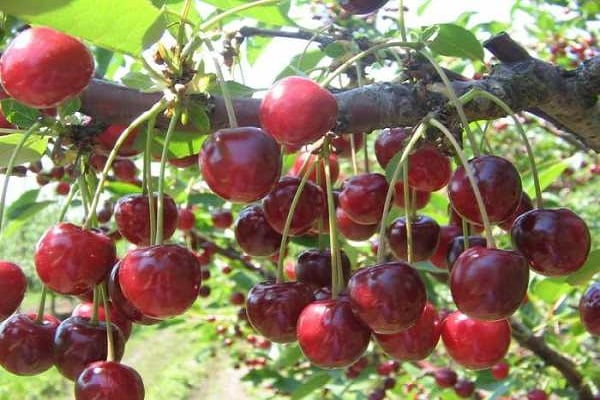
Evans Bali
A low-growing, compact variety was developed in the 80s. An adult tree does not exceed 2.5 m in height, the shape of the trunk is bushy, the crown is dense. The small size makes it easier to harvest, with up to 15 kg of berries coming out from one bush.
Cherries are late, ripen in August. They are large, 5 g each. The fruits are dark red, sweet with a slight sourness, juicy and aromatic. Suitable for fresh consumption, for baby food and home preservation.
Evans Bali is suitable for cultivation in Central Russia, with proper preparation for winter, it tolerates frosts down to -40 degrees. Does not require pollinating trees in the garden.
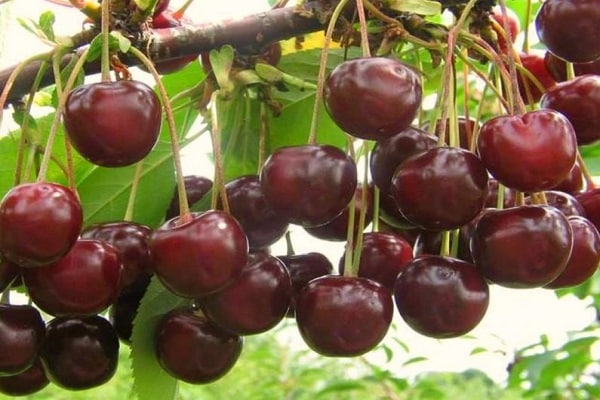
Landing features
For seedlings, sunny, windless places are chosen. Cherry hybrids also grow in partial shade, the conditions for a particular variety need to be clarified. Saplings are planted in spring, usually in mid-April, sooner or later, depending on the weather in spring. Planting is carried out when the soil has already warmed up, but until the buds open.
A distance of at least 3 m is left between the seedlings of medium-sized cherries.

Care
Caring for sweet cherries consists in forming and thinning the crown, watering, feeding and protecting against pests and diseases. The rules are the same as with regular cherries.
The crown is thinned every year so that it does not thicken - this can lead to chopping of the berries.
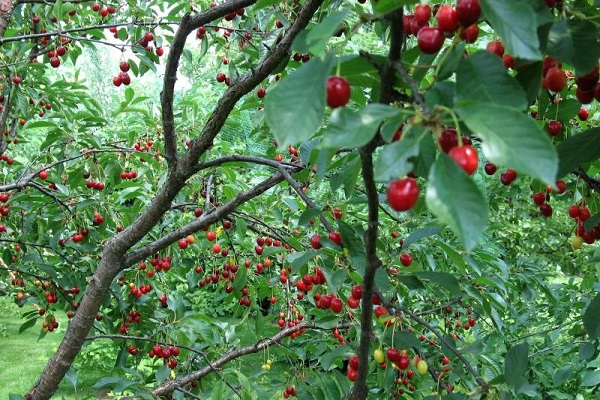
Top dressing begins in the second year. Organic fertilizers are applied to the soil at planting and then every 3 years, mineral fertilizers of different groups - every spring.
It is important to remove weeds from the trunk of a tree, especially in the first half of its life (7-10 years, depending on the variety). Once a month, you need to loosen the soil in this zone.
Trees are watered as needed, on average 4 times a season. Berries attract birds, so protection must be taken at the beginning of ripening. Install a special net around the crown or an ordinary scarecrow.
